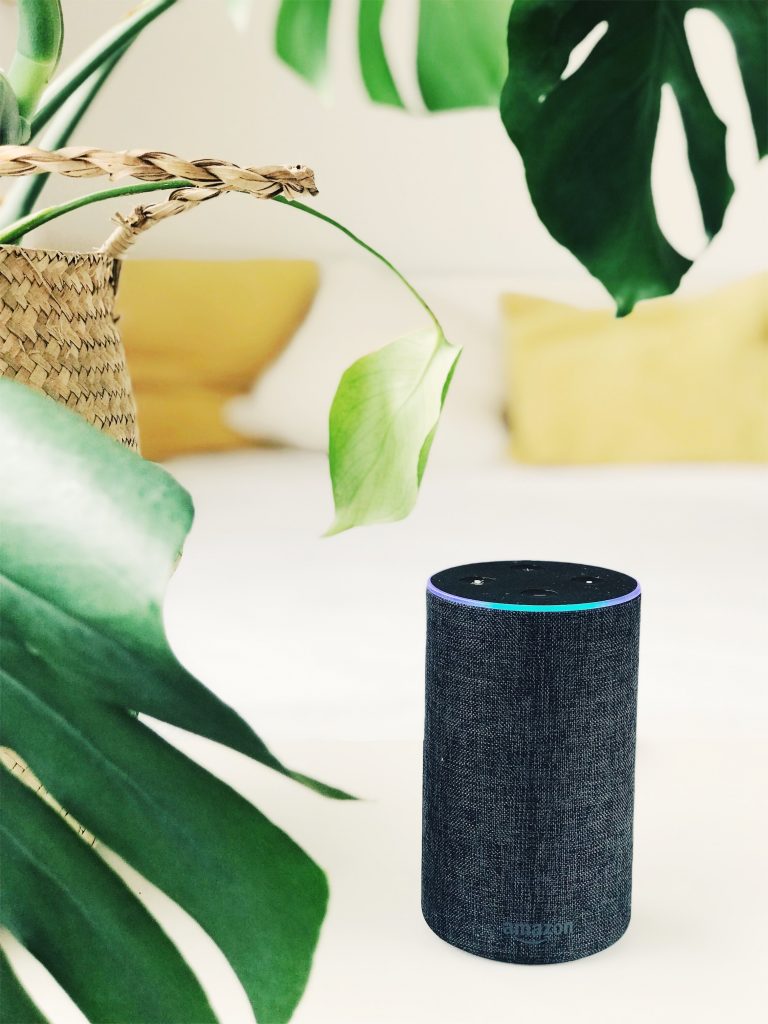A smart home is only as good as the level of automation achieved. Think about it: is your smart home truly smart if you need a bunch of devices to control the different appliances? Unfortunately, the Internet of Things scene is currently in disarray because the different players have not yet streamlined communications. This is where a smart home hub comes in.
What is a Smart Home Hub?
A smart home hub is a central device that connects all of your smart devices. To better understand what a smart home hub is, it helps to understand the problem that these gadgets solve.
The Problem with Smart Devices
There are many different brands of smart home appliances and solutions. Additionally, there are different communication protocols for these appliances and solutions. Some of the most popular communication protocols are Bluetooth, WiFi, Z-Wave, and Zigbee.
The diversity in options is good, but it also creates a communication barrier. For example, one appliance made by Samsung may be designed to communicate via Z-Wave, while another appliance by Phillips communicates via WiFi. The lack of compatibility in communications has two negative implications: either some of your commands and controls will be ineffective, or you will need to get as many control hubs as you have different appliances. The alternative is a smart home hub.
The Solution: Smart Home Hubs
A smart home hub is a mini-computer that streamlines communications between different smart home appliances and communication protocols. It essentially functions as the smart home’s central nervous system, whereby the homeowner can control every feature of their smart home from one platform facilitated by their smart home hub.

How Does a Smart Home Hub Work?
As mentioned, a smart home hub reconciles the differences in your smart home appliances’ communications protocols. It is a relay that receives, decodes, and optimizes commands in a way that they are understandable by different appliances.
For example, consider a smart home where the owner has pre-set the smart lights and TV to turn on when the sensors sense them approaching the door. However, the sensors and TV may be manufactured by a brand that work with Z-Wave, while the lights are only compatible with Bluetooth technology. The sensors will relay these pre-set commands to the smart home hub, which will then interpret them and relay them to the lights and TV.
A smart home hub’s versatility is facilitated through one central smart home application. The application essentially functions as a universal remote control for all smart home appliances.
Ideally, a smart home hub’s app should integrate with all smart home appliances and communication systems in your home. However, there are different smart home hub solutions, and their features and capabilities differ.
Smart Home Hub Alternatives
There is an argument that smart home hubs are not entirely necessary. This argument is partly credible because it depends on a variety of factors, including the chosen alternative solution.
There are several alternatives to a smart home hub, including Google Assistant, Amazon Alexa, Apple HomeKit, and IFTTT. These solutions are designed to streamline communications between different appliances, just like a smart home hub does.
However, these alternative solutions rely on two key components to do this: a gateway/bridge in the individual smart home components, and an internet connection to the cloud. The bridge enables these individual appliances to connect to the home’s WiFi router, while the cloud connection facilitates communication between these appliances and your smartphone (control device).
The cloud connection also eliminates the need for an interpreter, as well as the need for intercommunication between different appliances. Additionally, the bridges/gateways enable appliances to connect to hub-free cloud platforms. This entirely eliminates the need for a smart home hub.
Some of these alternative solutions – Apple HomeKit, Google Assistant, and Amazon Alexa – also offer one added convenience: voice command control. These solutions use their smart speakers and voice assistant technologies – Siri (Apple), Echo (Amazon), and Google Home – to issue commands via speech. Many homeowners prefer this because it is easier and quicker than giving commands via the phone. These smart speakers may act as your smart home hub.

However, these alternative solutions have their shortcomings, too. Their biggest shortcoming is the lack of reliability. It all has to do with the communication channels: WiFi vs. the alternatives (Z-Wave, Bluetooth, and Zigbee).
The problem with a WiFi connection is that it is easily interrupted. WiFi radio waves share channels with many other radio waves, including your phone’s and microwave’s radio waves. WiFi connections are also relatively easy to infiltrate and interfere with, depending on your cybersecurity’s reliability – homeowners have also raised credible concerns about voice command solutions collecting private data without their knowledge or consent. As such, you cannot always rely on your smart home to run smoothly.
Z-Wave, Bluetooth, and Zigbee connections are not as easily interruptible as WiFi connections. They run on different channels that have less radio wave traffic than the default WiFi channels – however, Bluetooth-based solutions may experience similar interruptions. As such, you can rely on them more often than not, compared to Wi-Fi connections.
Verdict: Do You Really Need a Smart Home Hub?
So, do you need a smart home hub when your home’s WiFi router can get the job done? You may, depending on how reliable (or unreliable) your WiFi internet connection is.
It’s also important to take into consideration the extra requirements of a WiFi-based smart home solution. For starters, you have to make sure that each appliance in your home has an inbuilt bridge/gateway for the solution to work. Additionally, you have to implement an impenetrable cybersecurity solution to avoid potentially malicious external interference.
It is safe to say that a smart home hub is a better solution than the alternatives, considering the different solutions’ benefits and shortcomings. Besides, some of the leading smart home hubs feature substantially more capabilities than WiFi-based solutions. For example, many modern hubs support voice commands, just like Google Home and Amazon Alexa. Finally, the reliability assured by a hub is more than worth it when you consider how irritating connectivity issues can be.
The post What is a Smart Home Hub and Do You Need One? appeared first on iDapt Web.
No comments:
Post a Comment